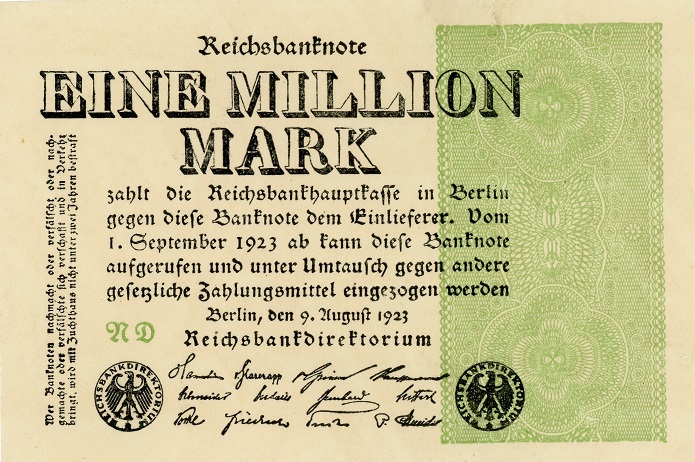It is pleasing to report that the markets have decided to turn upwards slightly after a bit of a savaging as a result of the latest banking crisis. Unwatched by many (as few investors have had much exposure) the Japanese market has quietly been rising too, attracting overseas’ funds and companies there to buy record amounts of their own stock and cancelling it ($71billion in the year to 31/3/23 thus pushing the Nikkei 225 Index up 19% since the beginning of the year to see a 33 year high (it is still 20% below its 31/12/89 high – a portent for the US market looking forwards perhaps, ahem!).
The weak yen of late has made Japanese assets cheaper too though I don’t believe that situation will endure (though that is another reason for a Sterling investor to buy it and the market). I am pleased to say we have retained exposure to the market but greedily I could say ‘not enough’… but every little helps, either to deflect losses or add icing to a cake more depressed elsewhere in the world. Have you had some Japan?
Also, our 14th largest investment for clients (we own over 8% of the Trust), is winding-up. As ever, it is a shame but conversely, we profit. The Trust has been trading below its asset value for a long time (one of the attractions for us to continue buying it and indeed why we buy many similar ones) but on a wind-up, we share 100% of the value of the whole pot. It is Abrdn Latin American Income Fund Limited, a trust that is exposed to a region which has performed well these last few difficult years for global markets. Indeed, in November 2021 (almost the peak for the US and ‘big tech), the shares were 45.6p. The latest net asset value is 65p, so 43% higher, and that excludes the 4%pa income.
That type of outcome helped us but it was assisted by the energy and natural resource bent of Latin America generally. However, back then, there was also a deep discount on the share price. It will still be losing money for some investors but we were increasing our exposure dramatically at the lowest points.
Don’t forget – if you hold only ‘open-ended’ funds (as is the case with most many advisers and investors ‘out there’), you will not benefit from owning assets at a discount as you can with investment trusts. That is one reason why we have mainly these types of listed funds and not their open-ended brethren. Average discounts to the underlying asset value are presently the highest since 2008 – so the best opportunity for this ‘special’ return potential since then. We have had four wind-up events announced on funds this year alone, all which will result in these styles of bonuses for shareholders, even if we have to wait a little while for some till investments have been liquidated and monies disbursed.
Centenary of rampant inflation

Yes, 1923 was when German inflation exploded. The Germans over-borrowed and printed cash during the First World War in the belief that on victory the subsumed nations would assume their debts which stood at 180 billion Marks in 1918. Instead, as we know, reparations of over 130billion Marks sank the economy and hyper-inflation resulted. The price to post a letter rose to 100billion Marks and people were burning the worthless paper money to heat their homes. Unemployment rocketed and the population saw abject poverty. The highest denomination stamp printed was 50billion Marks, enough for a local letter.
In 1922, the Reichsbank was printing up to three billion bank notes a day. In August 1923, a tram ride in Dresden already cost an eye-watering 15,000 Marks but that rose to 12million Marks by October and, four weeks later, 10billion Marks. A litre of milk was 350billion Marks, an egg 320billion and 1kg of potatoes ‘only’ 90billion. The Deutschemark had been one of the most stable currencies in the world since its 1875 introduction, primarily because it was pegged to the gold standard, at least up till 1914. In 1923, the Rentenmark was introduced and the exchange rate was 1:1trillion Deutschemarks though exchange was rationed. My thanks to Heinrich Kohler, philatelists, for this potted history!
Our inflation is nearer 10% but the effects are clear and what happens to destroy the real value of your cash and deposits. Whilst other assets (like shares) may change in value short-term too, in due time they tend to keep pace with inflation – an egg is still an egg and it still has its same purposes. Governments over-borrowing and over-spending are clearly a thing of the past as none would do that these days, would they… Maybe at the centenary we should give more attention to the worst economic disaster to affect a large, industrialised nation – and that is why this history remains so imprinted on Germans’ minds.
London Capital and Finance LCF

So the SFO (Serious Fraud Office) has given a 10-month suspended sentence to the CEO of this collapsed firm which defrauded investors of up to £237million He had creamed-off significant sums and was subject to a restraint order but hid money (which included a fraudulent insurance claim) from the investigators in his Wife’s name and spent some on luxurious living it seems. Sorry, but this is crime and a suspended prison sentence after what had already happened…?
It is suggested £140million has been retrieved… and taxpayers have had to find £115million for the difference – including colossal commission to the fraudulent marketing company which sold this rubbish to unsuspecting investors (savers who hadn’t checked to see that LCF was properly regulated).
Diversity and ESG to excess

These are buzz words for investment over the last few years (Environmental, Social and Governance), the drive not only to see change but to force the inclusion/involvement of ostensibly suitable assets and policies to better reflect them. However, imagining some ‘good’ is being done can prove very costly as the results are not necessarily borne-out in reality and negligence and fraud can populate the areas which are most favoured by well-intentioned investors keen to oblige.
The Canadian regulator has just suspended ‘Emerge Canada’ which ran $109million in Exchange Traded Funds. The company billed itself as ‘Canada’s first and only woman-owned investment fund firm’ and that, in itself, seemed enough to attract many investors, also based on emulating US ex-guru Cathie Wood who has lost investors colossal sums these last 18 months. The Regulator found the firm was not keeping enough working capital (only $100,000 needed, against the mere $12,819 held last September). A ‘highly unusual financial arrangement’ was discovered where the funds were owed about C$5.5million by the ‘sub-adviser to the funds’ as well as holding 1.5million cryptocurrency tokens.
Emerge believes the action is overly punitive, especially as it provides a niche product as ‘North America’s first all-woman investment team managing innovative and socially responsible investment strategies’. I am sorry but that is not a reason for investing. May the best man – or woman – do the job and ‘responsible governance’ starts at home. Stories like this give the great women we know in fund management and ESG strategies a bad name. Please don’t be suckered yourselves!
Blue Planet Investment Trust

The first payment on this closed fund should be on 24 May. Whilst still at a loss for most, there is some good news as the sum is better than expected – 8p a share. Brave investors could have bought extra shares before the wind-up started for only 4p – if they could have found any, for a 100%+ uplift in four months. A final penny or so will follow at the end.
This remains a travesty. Had the managers (the Murrays) reacted to our concerns and even maintained the portfolio as it was in January 2020 without a single change, the share price would have been four or five times as high, investors would have had fat annual dividends as opposed to none (we had been receiving over 10% so at least offsetting losses for most investors) and the asset value now would have been over 50p based on our earlier appraisals. The final portfolio was such a misrepresentation of what the Trust had been for all of our prior ownership. The management could have realigned its strategies in line with what it had done reasonably successfully to that point and what it represented which, to remind investors, was as a fully regulated Investment Trust listed on the main London Stock Exchange (with stringent rules), a management company fully regulated by the FCA and a Listing Authority to keep miscreants in check and to fine them for any breaches of the Companies Acts.
It is of no consolation but the Murray family owned the biggest chunk of the Trust and has lost the most – not only on the shares but destroying the value of its management company in the process. This sheer arrogance brought the results upon themselves, bringing-down everyone else in the process.
Below is the regulated statement the Trust published to promote itself and upon which investors should be able to rely, up till the benchmark moved from the FTSE100 to the NASDAQ Composite in June 2022 when the damage had all been done. At the end, primarily all the Trust owned was very speculative, smaller US technology stocks paying no income :-
‘The Trust invests in securities (including equities, exchange traded funds, equity-related securities, bonds and derivatives) issued by companies, Governments and other types of issuers located throughout the world with the objective of providing investors with a combination of capital growth and income.
When it comes to investment decision making at the company level we essentially buy two types of investments: Those that are there to provide capital gains and those, such as mature companies, bonds and preference shares, that are predominantly there to provide income. We then blend these in the proportions we believe to be appropriate for a given set of economic circumstances. The proportions in which we blend them, the level of gearing we run and our risk mitigation, including hedging, are influenced by our appetite for risk which is a function of where we believe we are in the economic cycle and our concerns over specific economic issues.
When it comes to income stocks we look for stocks where the P/E is low, dividend yield is high, well covered by earnings and that are selling goods or services with a low elasticity of demand. In essence, safe investments with stable, reliable and predictable earnings streams. However, when it comes to growth stocks the criteria by which we choose them is different. We like well funded companies, usually in the technology sector, with high quality management, that are selling products or services that are ‘disruptive’ and which offer exceptional rates of growth that are likely to endure for many years. Ideally they should also be diversified. In the case of bonds and preference shares two factors principally drive our selection process. Firstly, where we believe we are in the interest rate cycle and secondly, the issuer’s creditworthiness and name specific risks. The first test is to determine the likelihood of capital gains or losses arising from interest rate movements. The second test is to determine the level of risk to future interest or dividend payments arising from name and sector specific issues’.
Lessons? Well. Hindsight is wonderful but that’s not how decisions are made. I suppose an investor should be able to trust that the ‘system’ will act in the face of prospective failings. For us? We are reminded that the investment was less than 0.5% of all of our total client assets near the end and that even now, our biggest holding is only just over 2% of total client assets. That was/is only 50p of every £100 we manage so £99.50 of every client’s assets was in other things. We spread clients’ funds very, very widely, not because we plan such things but to protect against unforecastable events like this.
My best wishes
Philip J Milton DipFS CFPCM Chartered MCSI FPFS FCIB
Chartered Wealth Manager
Fellow Of The Personal Finance Society, Fellow Of The Chartered Institute Of Bankers





